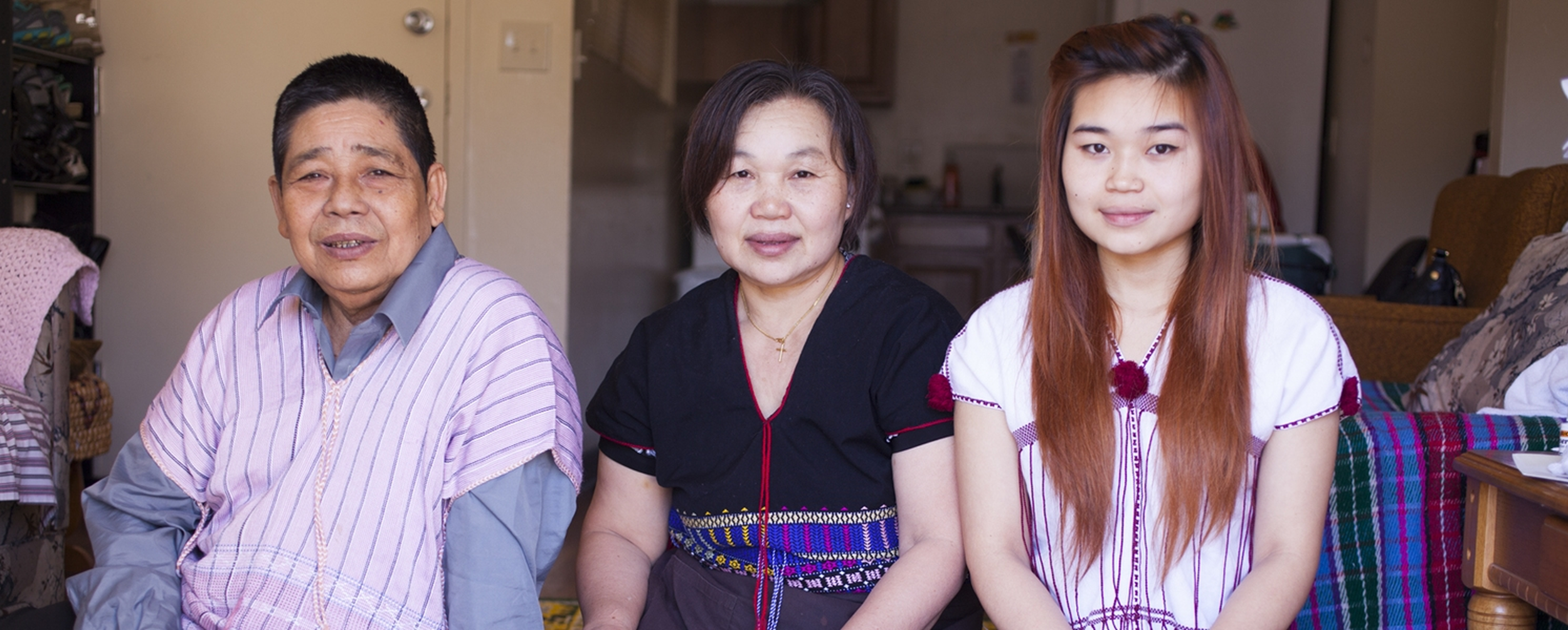OUR STUDENTS
We serve people who have sought refuge in the U.S. Our students include refugees, asylees, immigrants, asylum-seekers, Special Immigrant Visa recipients, and other newcomers.
We serve people of all ages and genders. All of our students are low-income and new to English.
Refugee & Immigrant Transitions students have come from ~50 countries. Top countries include Afghanistan, Burma, Bhutan, China, El Salvador, Eritrea, Guatemala, Honduras, Mexico, and Yemen.
Our students have brought a wealth of diverse knowledge, experience, and skills to the U.S., including such “skills of the future” as multilingualism and multiculturalism.
Migration brings a host of benefits to the U.S.
Despite the major challenges they face, newcomers are resilient, courageous, and determined to build new lives in the U.S. Studies have shown that migration brings many economic benefits, from new businesses and jobs to new tax revenue. There are also immense cultural benefits stemming from diversity and exposure to new ideas. Due to their first-hand experience with struggle, newcomers are well-positioned to be empathetic leaders of the future.
Our students have been forced to migrate due to war, persecution, violence, or economic duress.
Many newcomers have been through traumatic experiences, including violence, loss of loved ones, perilous journey to the U.S., and separation from families. Check out these Refugee Backgrounders from the Cultural Orientation Resource Center to learn more about what forces people to seek refuge.
We believe that safety is the fundamental precondition for enjoying one’s human rights. According to the Universal Declaration of Human Rights, “Everyone has the right to seek and to enjoy in other countries asylum from persecution.” (Article 14 (1)). In our programs, we strive to create safe and supportive environments, and foster a sense of acceptance and welcome.
The families we serve navigate significant challenges in the U.S.
While facing poverty, racism, and discrimination, our students work hard to build English and literacy skills, adjust to an unfamiliar culture and systems, and overcome social isolation. They experience multiple barriers accessing community resources and educational opportunities, including language and childcare barriers.
RIT tailors our programs to students’ needs.
For example, our Women’s Initiative program in Oakland reduces women’s childcare barriers to education. We offer classes for moms together with early education for their tots. Programs such as Home-based Tutoring and Social Adjustment Case Management offer one-on-one support to each participant. We keep students engaged by offering community-building activities such as Community Events and Workshops. And through collaboration with Community Leaders, we ensure that programs are culturally and linguistically sensitive.
“There is so much to learn from the resilience, courage, and intelligence we have developed through struggle. ...Refugees are going to be the next generation of leaders who shape the United States, their own countries of origin, and beyond.”
—Clemantine Wamariya, Human Rights Advocate & Storyteller, RIT Advisor, Author of memoir The Girl Who Smiled Beads: A Story of War and What Comes After

